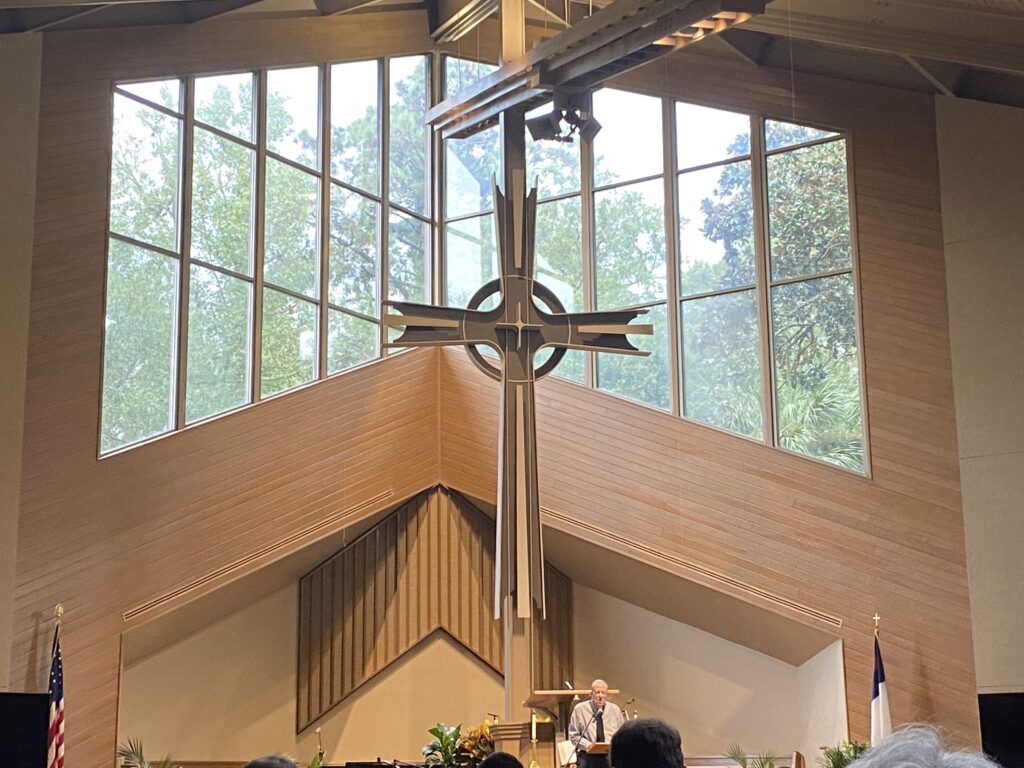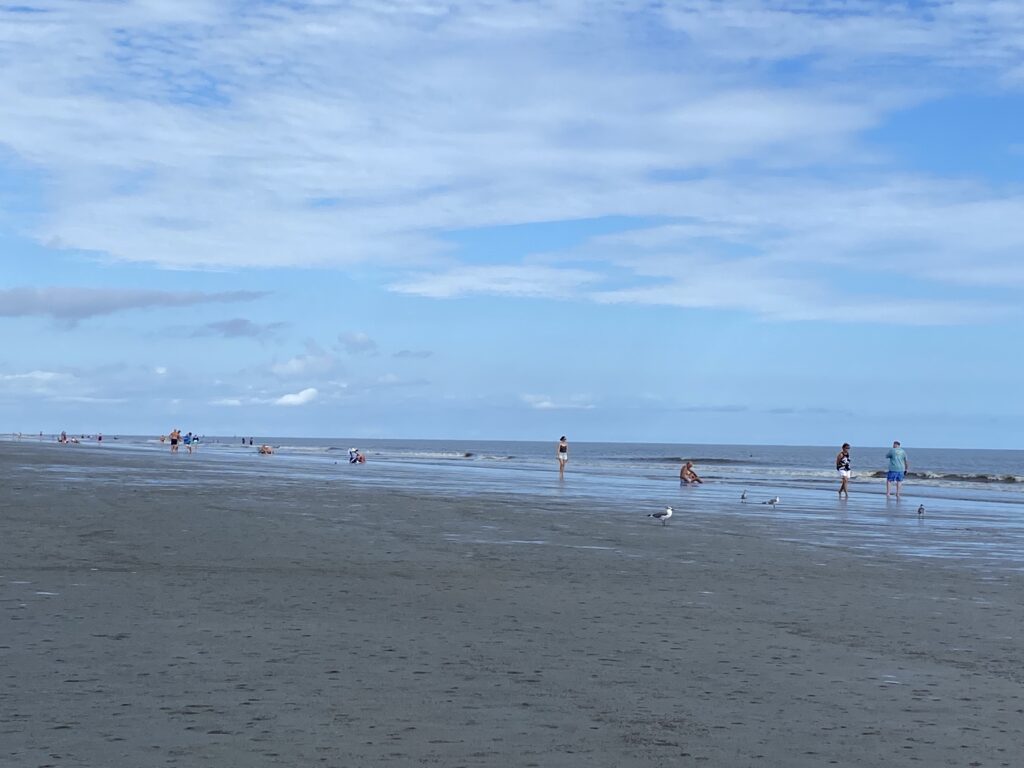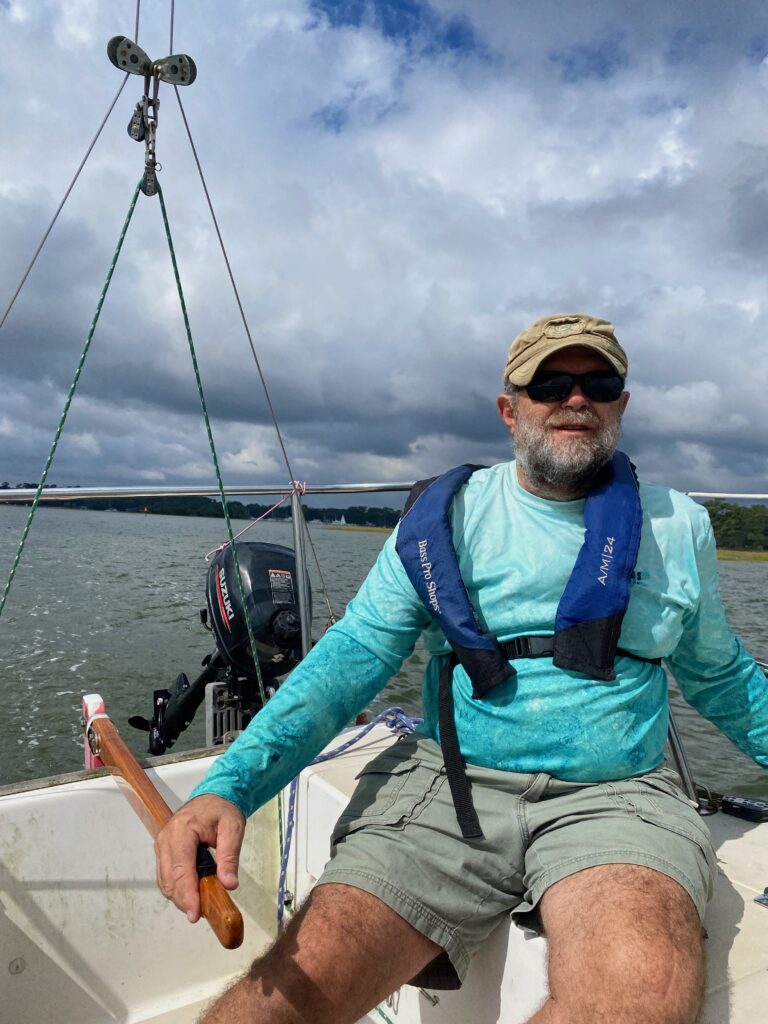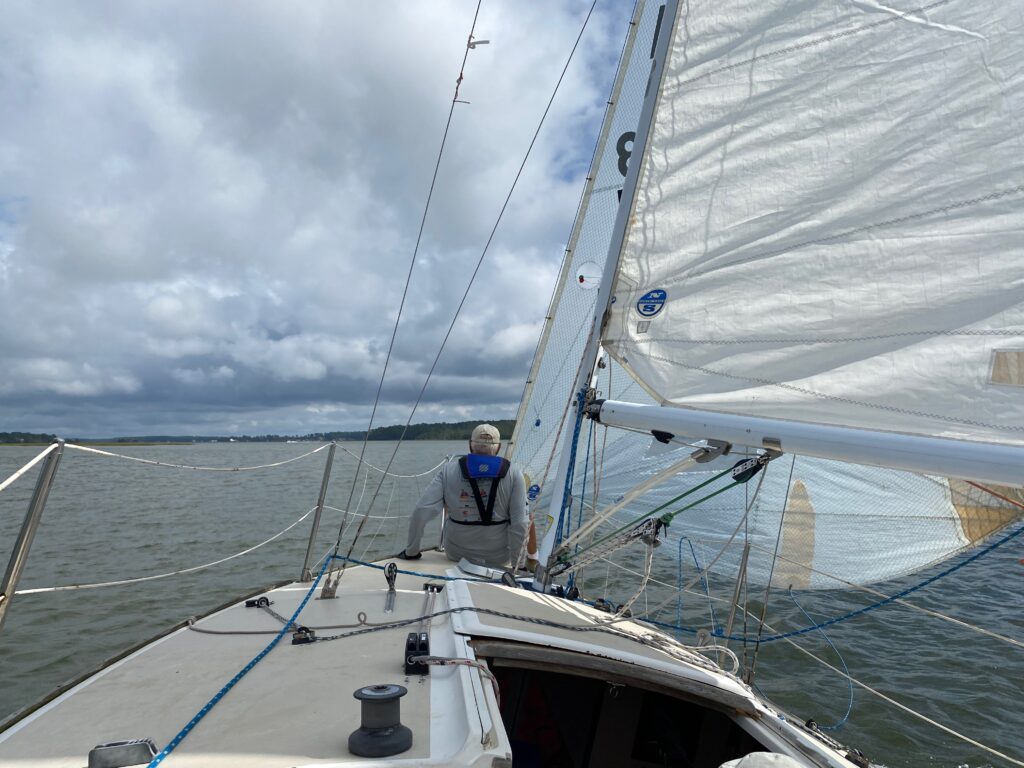This month I’ve been involved with academic travels through the Southeast, intersperse with family and fun activities. I began with a road trip to Hilton Head, where I spent three rainy days as a part of a Theology Matters’ conference held at Providence Presbyterian Church. The church has a massive campus on the south end of the island. Unfortunately, the rain was such that I didn’t even walk from the hotel to the church as I’d done in the past. Thankfully, the last day, the weather cleared long enough for me to take a walk out on the beach. In addition to interesting discussions, it was good to see a number of old friends and to make some new ones.

The conference, “from Generation to Generation,” looked at how we continue to share the gospel to each new generation. It featured stimulating lectures and as always, I came away with a more books on my to-be-read (TBR) pile. Below is a brief introduction to the keynote lecturers and their topics:
James Edwards, professor emeritus of theology of Whitworth College in Spokane, Washington gave two of the keynote speeches. I have always enjoyed listening to Dr. Edwards. His commentaries on Mark and Luke are a stable in my library. He spent much of his time discussing the development of the early church. Edwards hold the view that the concept of God in the early church came from its Jewish roots, not from a marriage between Jewish and Greek thought. Edwards made connection between the early church, existing under the Roman thumb, and the church today. He noted that autocrats are always powerful (and dangerous) during crisis, but that the church is called to be a truthteller in such times. Interestingly, Edwards has recently written a book on the ministry of Ernst Lohmeyer, who was persecuted by the Nazis and later executed by the Soviets shortly after World War II. But it was his newest book that made my TBR list: From Christ to Christianity: How the Jesus Movement Became the Christian Church in Less than a Century (Baker 2021).
Jennifer Powell McNutt, professor of theology at Wheaton College, spoke on the church in exile. Drawing on the current refugee problem along with the refugee issues of the 16th Century, she noted that the refugee crisis impacted the life and work of John Calvin. She also noted how, during the Reformation, being a follower of Jesus could easily lead one into a refugee situation. In Calvin’s commentary on 1st Peter, he reminds us that “children of God are only guest in the world.” However, even though we are exiles on earth, we are called to engage and be in ministry, as opposed to withdrawing from the world. And part of the church’s calling is to “end the suffering of others.” While she drew heavily from Calvin, she also drew from Theodore Beza, Calvin’s successor, of whom I learned was an accomplished poet. I never knew this about him and will need to learn more. McNutt is author of Calvin Meets Voltaire: The Clergy of Geneva in the Age of Enlightenment, 1685-1798. While it sounds interesting, it is expensive. I did pick up a copy of a book she edited, The People’s Book: The Reformation and the Bible.
Jeffrey Bullock, President of Dubuque Theological Seminary titled his lecture, “7 Observations on Theological Education.” While his jumping off point was the seminary, his observations had more to do with the church at large. He told of the church where he came to faith in Jesus Christ (his parents weren’t religious) which closed. They didn’t have to close. They still had significant resources, but they were tired. And to the very end, there was someone taking minutes. We Presbyterians have a way to make sure everything is neat and in order. While maintaining church order, Bullock suggests we have lost the vision. He also had criticism on “too many duds” who come to seminary misfit for ministry and how the church needs competent leadership. Furthermore, he critiqued seminaries for being too much an academy and having no connections with churches. Pastors, while they can gain knowledge in seminary, must be nurtured in the church, according to Bullock. He also believes the “project” of the mainline denomination has come to an end. Once the religion of America became its culture, we lost our identity.
Richard Ray, former professor and currently chairman of the board for the Presbyterian Heritage Center in Montreat, NC, picked up on the theme of exiles, reminding us that we’re always safer in exile. When things are going well, it’s harder to experience divine power. The Bible invites us into divine power, which is invisible to many because it is revealed in weakness. Quoting Augustine, “our words are not adequate for what is being portrayed but that is the beauty of it all.” The Bible is about miracles. It’s saying, “You want believe what will happen with Jesus.” Our help is not in our abilities but in God’s power, which is the beauty of Scripture. Like others, Ray pointed to the late 1930s when the danger of totalitarianism in the world was high with the rise of fascism and totalitarian communism. From this era, he recommended the novel Darkness at Noon, by Arthur Koetler, which dealt with a Stalinist style government.
Steve Crocco, recently retired as the librarian at the Yale Divinity School, titled his talk, “Running Toward the Sound of Gunfire. He spoke about how we era now ending a new era after the end of Christendom. Noting that ministry has always been difficult, we now have new challenges that the church has never faced. Quoting Karl Barth’s famous saying that one should preach with the Bible in one hand and the newspaper in another, he joked that it was a shame no one asked Barth which newspaper. Today, there are no consensus on which news source to trust. His advice was to focus on the letter to the church in Ephesus in the book of Revelation. There, the church is praised for its truth, but condemned for having lost its first love. The love of Jesus compels the church into the danger. He noted how many in the Nazis era, were too scared to speak out. But there were a few like Bonhoeffer, who “ran back toward the sound of gunfire” when he left his comfortable position in New York to return to Germany as war loomed. Of course, Bonhoeffer the Nazis executed Bonhoeffer.

After his talk, I had lunch with Steve. It was good to catch up. We hadn’t seen each other in over 30 years. In my first year of seminary, he was hired as a new PhD to be the librarian at Pittsburgh Seminary. We played some ball together, as that first year he lived in a student apartment with his family as he attended the University of Pittsburgh to earn a Master’s in Library Science (a requirement for his job). Steve left Pittsburgh after nearly 10 years. He would go on to serve as head librarian at Princeton Theological Seminary, the Army War College, and then Yale Divinity School.
Joseph Small, retired director for the Office of Theology and Worship of the Presbyterian Church USA, encouraged us to ask the burning question of those in the church, “Is it true?” He went on encourage deep theological thinking while suggesting there are four basic theological questions: 1. Who is God really, 2. Who are we, who am I, 3. What does God have to do with us? And 4. What do we have to do with each other? Then Small cheated a bit and suggested a fifth question, “What am I going to do now?” Small encouraged us to read at least one significant theological book a month and to read it in a community of others with whom you could discuss our reading. His book recommendation was Douglas John Hall’s Lighten Our Darkness.
Todd Billings teaches Historical Theology at Western Theological Seminary in Holland, Michigan. Unfortunately, at the last minute, his doctors encouraged him not to travel as he has been struggling with terminal cancer. So, he sent a recorded his talk titled, “A Surprising Hope: Bearing Wounds.” Billings first focused on the pandemic. He lamented how our culture trains us to deal with emergencies by finding someone else to blame (we act as if our ideological opponents are always wrong). In too many ways, our public dialogue is much like the pharisee in Matthew 18, who gives thanks in his prayers that he’s not like others. But Jesus was critical of this pharisee. Instead, new need to present a genuine faithfulness to the world, one that shows we serve a God who can bring water into the desert. He notes how Paul refers to our body as a temple. We need to remember that the temple does not make God active, but thinking of our body as a temple reminds us that we do not belong to ourselves. Furthermore, no temple is holy. Only the God who resides there is holy. If we think we are holy, we will be disappointed and not have a hope with which we can pass on to a new generation. Billings’ memoir (of him and his family struggling with cancer and his mortal limits) is titled The End of Christian Life. It has jumped to the top of my TBR pile.

After three days on Hilton Head, I drove down to Savannah with the plans to sail on Friday and Saturday. Sadly, Friday brought too little wind and way too much rain. But I did get a long sail in on a J24 with some friends from the Landings Sail Club on Saturday morning and early afternoon. Then, I drove to Wilmington, NC and spent a couple of nights with my father, before heading back to the mountains.


As well as your conference, I am pleased that you got some sailing in.
I enjoyed your photographs.
All the best Jan
What an interesting and challenging conference, Jeff! My conferences have been about writing, children’s literature, rocks, and petroleum. My already purchased to-be-read pile of books is so big I feel guilty. Todd Billings “The End of Christian Life” has been added to my written list of books I’d like to read. Hopefully, at some point, you’ll share a review. I’m glad you got a little sailing in. Take care!
Wow, such a lovely place, and so inspiring too! Thanks for sharing your adventures, your photos are always so enjoyable too.
Hilton Head is nice except when you have to get into a car… driving there is a pain!
Wow, that’s a pretty church in your first photo. I’d probably be staring out the giant window the whole time. Sounds like an interesting conference, and I’m glad you got to spend some time on the water.
It is a beautiful church. The church consists of many buildings in a campus on 20-some acres. But the sanctuary is stunning.
I love your pictures. The views are great.
Thanks, Mary
Sounds like a wonderfully meaningful trip all around. The authors/presenters all sound very thoughtful: a nice combination of reflections on history and the role of the current church. Thanks for sharing.
And, of course, always delighted to see your sailing photos.
It’s always good to spend some time on the water! I just wish I had two good days for sailing instead of one. And the conference was well done.
What an inspiring list of speakers. I would love having all of that knowledge wash over me, in the back of the room, eyes closed, enjoying. And the sailing–lovely end to it!
If you were in the back of the room, you’d been sitting with me… It’s always nice to be able to sit in the back, I don’t normally have that luxury.
What a stunning view from that window behind the pulpit! I might find it hard to concentrate on the speaker.
It is a wonderful view, isn’t it.